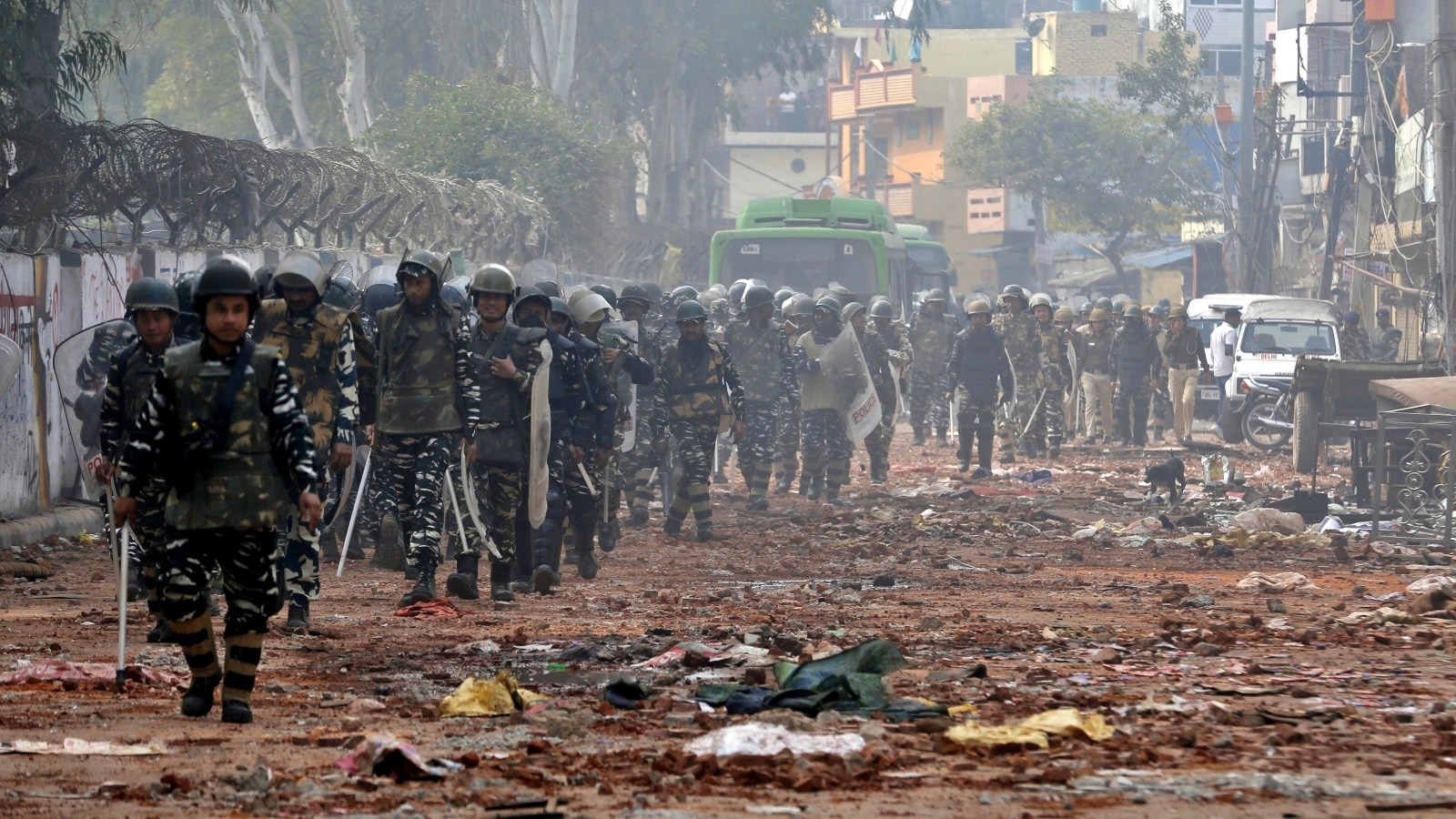Politics
Courts Highlight Fabricated Evidence in 17 Delhi Riot Acquittals

Local courts in Delhi have raised serious concerns regarding the integrity of police investigations in cases stemming from the 2020 riots. In a review of 93 acquittals related to these incidents, serious improprieties have been identified in at least 17 cases, according to an investigation by The Indian Express. This marks nearly one in five of the total acquittals, illuminating troubling patterns of misconduct.
The courts have flagged numerous instances of “fabricated” evidence, “fictitious” witnesses, and statements manipulated by police officers. In some cases, it was revealed that witness statements were written under police direction, undermining their authenticity. The judiciary has expressed alarm over the implications of such practices, which threaten public trust in the legal system.
By the end of August 2025, verdicts had been delivered in 116 out of 695 cases of rioting, arson, and unlawful assembly filed by the Delhi Police. Of these, 97 resulted in acquittals and 19 in convictions. The cases where courts highlighted questionable evidence predominantly originated from the northeastern districts of Delhi, including **Dayalpur**, **Khajuri Khas**, and **Gokalpuri**.
In at least 12 cases, judges noted the introduction of “artificial” witnesses or evidence that appeared to be contrived. For instance, in one notable ruling from **December 2022**, Additional Sessions Judge **Parveen Singh** stated that there had been “egregious padding of evidence” by the Investigating Officer (IO), which severely compromised the rights of the accused. He warned that such actions could dismantle public faith in the investigative process and the rule of law.
The violence in northeast Delhi in February 2020, which resulted in over 53 deaths and more than 700 injuries, was driven by protests against the Citizenship Amendment Act (CAA). The significance of these findings cannot be overstated, as they reveal a systematic failure in the handling of cases that have already caused immense human suffering.
Concerns Over Police Conduct
Among the 17 acquittals flagged by the courts, several cases exhibited striking similarities in their issues. For example, two separate rulings highlighted the failure of police to conduct a Test Identification Parade (TIP), leading to inferences that investigators were aware the cases against certain accused individuals were fabricated.
In one case from **May 2023**, a judge noted that the complainant was falsely identified as a witness who could identify the accused. The judge remarked that this indicated a deliberate effort by the police to manufacture evidence. Statements in several other cases were also found to be dictated or supplemented by police officers, raising further questions about their validity.
In another ruling from **August 2023**, the court noted the “probable manipulation” of case records, emphasizing that the narrative constructed by the police was not only misleading but also detrimental to the accused. The consistent discovery of artificial claims and fictitious witnesses has led the judiciary to question the motives behind these investigations.
Implications for Justice
The findings from these cases have profound implications for the justice system in India. The judiciary has stressed that such practices not only violate the rights of the accused but also erode public trust in law enforcement. The statement by Judge Singh encapsulates the gravity of the situation, highlighting the potential long-term damage to public confidence in the rule of law.
The courts have made it clear that the responsibility of ensuring justice lies not only with the judiciary but also heavily on the police. The systemic flaws in the investigation processes reveal a need for significant reform within law enforcement agencies to uphold the principles of justice.
As the legal proceedings continue and more cases are reviewed, the emphasis on accountability and proper investigative practices will be essential in restoring faith in the justice system. The courts’ findings serve as a crucial reminder that justice must be pursued with integrity and transparency, safeguarding the rights of all individuals.
-

 World5 months ago
World5 months agoSBI Announces QIP Floor Price at ₹811.05 Per Share
-

 Lifestyle5 months ago
Lifestyle5 months agoCept Unveils ₹3.1 Crore Urban Mobility Plan for Sustainable Growth
-

 Science4 months ago
Science4 months agoNew Blood Group Discovered in South Indian Woman at Rotary Centre
-

 World5 months ago
World5 months agoTorrential Rains Cause Flash Flooding in New York and New Jersey
-

 Top Stories5 months ago
Top Stories5 months agoKonkani Cultural Organisation to Host Pearl Jubilee in Abu Dhabi
-

 Sports4 months ago
Sports4 months agoBroad Advocates for Bowling Change Ahead of Final Test Against India
-

 Science5 months ago
Science5 months agoNothing Headphone 1 Review: A Bold Contender in Audio Design
-

 Top Stories5 months ago
Top Stories5 months agoAir India Crash Investigation Highlights Boeing Fuel Switch Concerns
-

 Business5 months ago
Business5 months agoIndian Stock Market Rebounds: Sensex and Nifty Rise After Four-Day Decline
-

 Sports4 months ago
Sports4 months agoCristian Totti Retires at 19: Pressure of Fame Takes Toll
-

 Politics5 months ago
Politics5 months agoAbandoned Doberman Finds New Home After Journey to Prague
-

 Top Stories5 months ago
Top Stories5 months agoPatna Bank Manager Abhishek Varun Found Dead in Well









